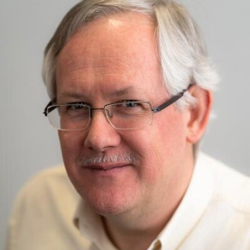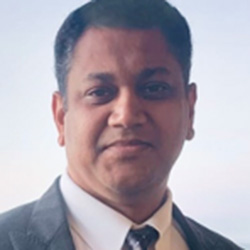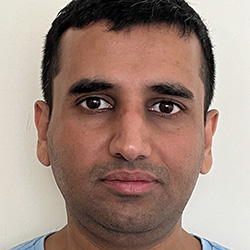[2] Invited Talk by Dr. Saurabh Mittal:
Systems, Models and Simulation Architectures for Digital Twin Engineering
Abstract
Digital Twins are virtual models that are representative of, and often interacting with, their physical system counterparts. Methodologies needed to perform digital twin engineering (DTE) are adapted from various disciplines that include Software Engineering, Systems Engineering, Simulation Engineering, Network Engineering and the domain-specific Engineering and Physical Sciences.
DTE incorporates two fundamental aspects: the art of model abstraction for the digital twin that needs to be grounded in a specific discipline, and the underlying simulation/software systems infrastructure engineering that must support the constraints of digital twin performance.
This talk will share experiences with a Simulation, Experimentation, Analytics and Testing (SEAT) layered architecture framework and its application to cyber physical system (CPS) engineering, as applied to an Internet of Things (IoT) use case involving a digital network-enabled thermostat in a virtual home. We will demonstrate how models and systems are developed iteratively using agile systems engineering lifecycle and describe the architectural constructs for the persistent/on-demand hardware/software infrastructure for DTE.
The authors affiliation with The MITRE Corporation is provided for identification purposes only, and is not intended to convey or imply MITRE’s concurrence with, or support for, the positions, opinions or viewpoints expressed by the author.
Biography of Dr. Saurabh Mittal
Dr. Saurabh Mittal is currently a Principal Scientist and a Project Leader at The MITRE Corporation. Previously at MITRE, he has held roles of Chief Scientist for the Simulation, Experimentation and Gaming Department, Tech. Advisor and Modeling & Simulation (M&S) Subject Matter Expert to various gov. sponsors and Principal Investigator for multiple internal research efforts involving cyber-physical systems, digital twins, Internet of Things and virtual cloud-based simulation system of systems.
He received PhD (2007) in Electrical and Computer Engineering with dual minors in Systems and Industrial Engineering, and Management and Information Systems from the University of Arizona, Tucson. He has co-authored over 100 publications as book chapters, journal articles and conference proceedings including 5 books, covering topics in the areas of complex systems, system of systems, complex adaptive systems, and M&S-based complex systems engineering.
He served as the President for the Society for Modeling and Simulation International (SCS) for FY21 and a member of the Board of Directors (FY18-20). He has also served as General Chair, Vice-General Chair, Program Chair and Track Chair during the 2013-2023 period in Spring, Summer and Winter Simulation Conferences. He is a recipient of the US DoD's highest civilian contractor recognition: Golden Eagle award, and Outstanding Service and Professional Contribution awards by SCS.


